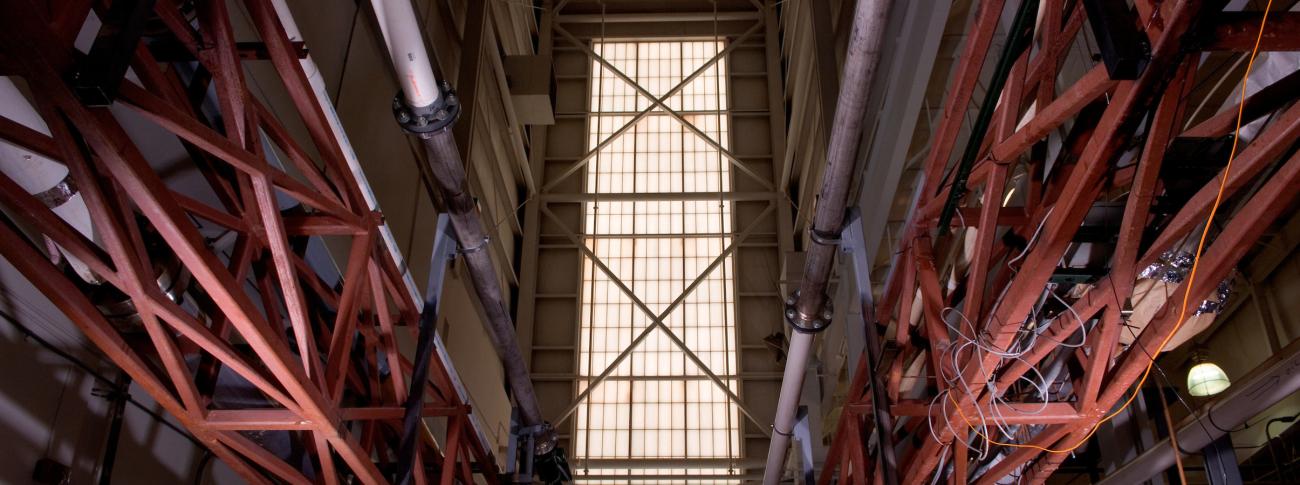
Institute for Corrosion and Multiphase Technology
Solving Corrosion Problems in the World's Energy Supply Lines
Researchers at the Institute for Corrosion and Multiphase Technology (ICMT) have the unique capability to tackle one of today’s biggest challenges: preserving the integrity of major energy supply lines. Corrosion in oil and gas production and transportation infrastructure can cause catastrophic failure, environmental devastation and has large economic consequences.
Experts at ICMT partner with the world’s leading oil and gas, chemical, and engineering companies to predict and resolve their corrosion problems to help keep oil and gas production and transportation efficient, reliable, and safe. Through a unique combination of basic and applied research, and solution-based development, our engineers and technologists create for good.
-
ResearchOur studies of pipeline flow systems and chemical processes involving common corrosive elements helps maintain pipeline integrity and protect the environment from catastrophic pipeline failure.
-
PeopleLed by Dr. Srdjan Nesic, we operate six large project teams comprised of doctoral and master’s candidates, postdoctoral researchers, project engineers and techs, and undergrad students.
-
Facilities & InstrumentationOur $5 million lab facility features the unique capacity to generate a variety of flow regimes to simulate complex corrosion environments seen in real pipelines.
-
SponsorsThe support of our strategic partners is critical to ensuring that our research in multiphase flow design and corrosion prediction continues.
ICMT News
Seminar at Colorado School of Mines
Dr. Yoon-Seok Choi was invited as a guest lecturer to give a seminar in the Department of Metallurgical and Materials Engineering at Colorado School of Mines on October 24th, 2004. His lecture was on "Confronting Corrosion Challenges in the Oil & Gas Industry and Carbon Capture & Storage (CCS) Processes".
Recent Publications
2024
- Quantification of the Adsorption Kinetics of a Model Corrosion Inhibitor on Gold Using QCM-D, K. Singla, H. Perrot, B. Brown, S. Nesic, Corrosion, Vol. 80, No. 12, pp. 1207-1218, 2024
https://doi.org/10.5006/4634 - Effect of Oil-Water Intermittent Wetting on Corrosion Inhibition of Carbon Steel in CO2 Environment, Y. He, X. Wang, L. Paolinelli, D. Young, M. Mohamed-Said, S. Singer, Corrosion, Vol. 80, No. 8, pp.796-807, 2024
https://doi.org/10.5006/4575 - Effect of formic acid on aqueous corrosion mechanisms of mild steel, S. Ayyagari, M. Eslami, F. Madani Sani, Y-S. Choi, B. Brown, S. Nesic, Electrochimica Acta, Vol. 503, 2024
https://doi.org/10.1016/j.electacta.2024.144863 - Mechanism and Rate Law for High-Temperature Carboxylic Acid Corrosion of Steels, I. Patel, G. Bota, P. Jin, and D. Young, Energy Fuels, 2024 https://doi.org/10.1021/acs.energyfuels.4c01284
- Efficiency of Volatile Corrosion Inhibitors in the Presence of n-Heptane: An Experimental and Molecular Simulation Study, M. Eslami, S. Sharma, D. Young, and M. Singer, Corrosion, Vol. 80, No. 6, pp.615-629, 2024 https://doi.org/10.5006/4531
- Temperature Dependence of Adsorption and Effectiveness for a Pyrimidinium-Type Corrosion Inhibitor on Mild Steel, Y. He, S. Ren, X. Wang, D. Young, M. Mohamed-Said, B. Santos, M. Serenario, and M. Singer, Corrosion, Vol. 80, No. 2, pp.177-186, 2024 https://doi.org/10.5006/4346
- A critical review of models for density, viscosity, and diffusivity in aqueous sodium chloride solutions, F. Madani Sani, and S. Nesic, Electrochimica Acta, Vol. 477, 2024 https://doi.org/10.1016/j.electacta.2024.143766
- Effect of formic acid (HCOOH) on the corrosion protectiveness of magnetite (Fe3O4) at elevated temperature, M. Eslami, Y-S Choi, S. Nesic, and R. Breining, Corrosion Science, Vol. 229, 2024 https://doi.org/10.1016/j.corsci.2024.111868
2023
- Electrochemical Study of Corrosion Inhibition During Oil/Water Intermittent Wetting, Y. He, X. Wang, D. Young, M. Mohamed-Said, S. Ren, and M. Singer, Journal of The Electrochemical Society, 2023, Vol. 170, No. 11, 2023 https://doi.org/10.1149/1945-7111/ad09f6
- Impact of Residual Cementite on Inhibition of CO2 Corrosion of Mild Steel, S. Ren, X. Wang, D. Young, M. Mohamed-Said, B. Santos, Y. He, and M. Singer, Corrosion Science, Vol. 222, 2023 https://doi.org/10.1016/j.corsci.2023.111382
- Inhibition of Localized Corrosion Propagation on Carbon Steel: a Potentiostatic Study, B. Santos, M. Serenario, X. Wang, D. Young, M. Singer, M. Mohamed-Said, S. Ren, and Y. He, Corrosion, Vol. 79, No. 8, pp. 935-943, 2023 https://doi.org/10.5006/4344
- Effect of Flow on the Corrosion Behavior of Pipeline Steel in Supercritical CO2 Environments with Impurities Solutions, Y-S Choi, M. Colahan, and S. Nesic, Corrosion, Vol. 79, No. 5, pp. 497-508, 2023 https://doi.org/10.5006/4199
- Calculation of Cathodic Limiting Current Density in Weak Acids: Part I. Aqueous CO2 Solutions, S. Nesic, and F. Madani Sani, Journal of the Electrochemical Society, Vol. 170, 2023 https://doi.org/10.1149/1945-7111/acb4e5
- Adsorption mechanism of quaternary ammonium corrosion inhibitor on carbon steel surface using ToF-SIMS and XPS, L. Wang, H. Wang, A. Seyeux, S. Zanna, A. Parilleret, and S. Nesic, Corrosion Science, Vol. 213, 2023 https://doi.org/10.1016/j.corsci.2022.110952
- Effect of a Small Amount of Cr and Mo on Aqueous CO2 Corrosion of Low-Alloyed Steel and Formation of Protective FeCO3 in Near-Saturation Condidtions, K. Kondo, Y-S Choi, and S. Nesic, Corrosion, Vol. 79, No. 1, pp.97-110, 2023 https://doi.org/10.5006/4100